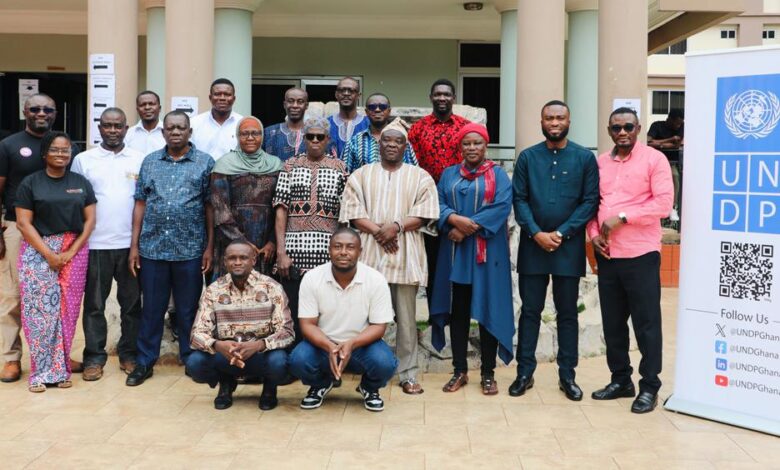Ghana Moves to Strengthen Shea Industry and Restore Forests Through GSLERP Initiative

Northern Ghana is seeing renewed momentum in sustainable land restoration and economic development through the Ghana Shea Landscape Emission Reductions Project (GSLERP). Funded by the Green Climate Fund (GCF), the initiative is supporting efforts to protect the environment, enhance climate resilience and improve incomes in the shea-growing regions of the Northern Savannah ecological zone.
GSLERP is being implemented by the United Nations Development Programme (UNDP) Ghana, the Forestry Commission, the Tree Crops Development Authority (TCDA) and the Global Shea Alliance (GSA), with the goal of positioning shea as a leading green commodity that supports both livelihoods and environmental conservation.
Shea: A Natural Resource Linking Economy and Environment
Shea plays a central role in rural economies, especially among women who collect and process shea nuts for sale. The commodity is also critical to global cosmetic and food industries, where demand continues to rise. However, erratic rainfall, bushfires, overgrazing and the clearing of shea trees for charcoal have degraded the landscape, threatening both the ecosystem and incomes.
GSLERP seeks to reverse these trends by restoring degraded lands, improving shea tree parklands, providing training in sustainable harvesting, and supporting communities to adopt climate-conscious land-use practices.
National Shea Commodity Platform Validated
A major milestone in this effort is the Validation Workshop for the National Shea Commodity Platform (NSCP). The platform is expected to serve as the coordinating body for shea sector stakeholders, bringing together producers, processors, exporters, researchers, traditional authorities and financial institutions under one structured system.
The NSCP is designed to improve policy coordination, promote sustainability, strengthen quality standards and ensure fair benefit-sharing across the value chain.
Forest Specialist at UNDP Ghana, Ayirebi Frimpong, highlighted the significance of collaborative structures in advancing the sector.
“This activity reflects a key objective of the GSLERP project, leveraging a multistakeholder approach to strengthen the enabling environment for the shea sector. Such platforms are vital for managing green commodities and implementing landscape approaches that promote sustainable resource use,” he stated.
TCDA Reaffirms Commitment to Developing Strategic Tree Crops
The Tree Crops Development Authority (TCDA) emphasized that the development of the shea sector is closely linked to national economic diversification efforts. The Authority regulates and supports several strategic crops including shea, cashew, coconut, mango, rubber and oil palm.
Deputy CEO of TCDA, Rich Kofi Kofituo, stressed that partnerships are crucial for success.
“Realizing the potential of these crops requires more than regulation. It demands collaboration. We are committed to working with government agencies, NGOs, and financial institutions to actively develop the shea sector, ensuring that all stakeholders benefit fully,” he noted.
Stakeholders Call for Youth Inclusion to Sustain Production
Participants at the workshop reviewed the platform’s structure and provided feedback to strengthen its coordination and implementation role. One of the recurring themes was the need to intentionally integrate young people into shea production and processing.
Chief Adam Tampuri, one of the participants, stressed the urgency of building the next generation of shea custodians.
“We need to ensure that young people are properly integrated into the shea industry. This will help them develop interest and commitment, so that when the older generation retires, the youth will be ready and equipped to take over and sustain the industry,” he said.
A Step Toward a More Resilient Shea Sector
The validation of the National Shea Commodity Platform marks a significant step toward building a resilient, competitive and inclusive shea industry in Ghana. With coordinated investment and continued collaboration under GSLERP, partners aim to:
- Restore forest and woodland landscapes,
- Strengthen women-led shea enterprises,
- Increase the economic value of shea products,
- Reduce emissions linked to land degradation.
The next phase of engagement will involve the official launch of the platform and the establishment of the Shea Hub to serve as a knowledge and coordination centre for stakeholders.
As implementation advances, the shea sector is expected to play a greater role in climate action, rural employment and sustainable economic development across Northern Ghana.




